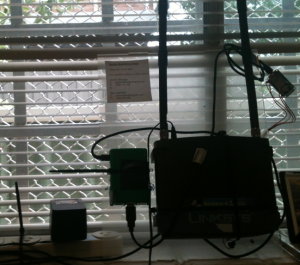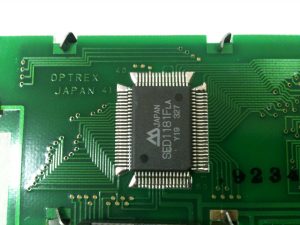 Well happy new year and I hope that you have had a happy and safe holiday season! I’ve made a few minor changes to my sshfail project. For those of you who don’t know what that’s about have a look at this old post. In a nut shell it’s a script to generate a report that looks at the number of unsuccessful attempts to attack your machine if you have ssh enabled. It also creates a list of the ip address that generate this may hem and it’s darn educational.
Well happy new year and I hope that you have had a happy and safe holiday season! I’ve made a few minor changes to my sshfail project. For those of you who don’t know what that’s about have a look at this old post. In a nut shell it’s a script to generate a report that looks at the number of unsuccessful attempts to attack your machine if you have ssh enabled. It also creates a list of the ip address that generate this may hem and it’s darn educational.
My own experience is that the the machine fights back anything from 3 to 6 thousand attempts a day to hack it! I’m making an assumption that the bigger sites – targets may be taking more flac than that. It’s sobering and sad that this is the state of the internet today. SO be careful out there and secure your machines.
Oh and the pic I’ve included – well stay tuned it’s an exciting arduino pi based project that I may let you all in on soon. But it’s secrete and in testing at the moment!
Hope you all have a most amazing 2018 and that you stay safe and happy.
Kind regards & have fun!
Steve Abrahall
PS for those of you who might like to run – play with the script hear is the source code.https://github.com/nevetsanderson/sshfail
if you have Git installed just cd to your home and run the following.
git clone https://github.com/nevetsanderson/sshfail.git
 So I moved home recently and what I didn’t realise, and what was also a very pleasant surprise, was that the new home has a fiber optic link (or fttp if you want the nice acronym!). So now via a not so great gigabit link via my ISP’s cheap and rather crappy supplied modem. It’s not rocket ship fast but should hopefully be a lot better than the old ADSL2 link that the poor thing limped along on. Fingers crossed that this should work faster and we should have longer uptimes!
So I moved home recently and what I didn’t realise, and what was also a very pleasant surprise, was that the new home has a fiber optic link (or fttp if you want the nice acronym!). So now via a not so great gigabit link via my ISP’s cheap and rather crappy supplied modem. It’s not rocket ship fast but should hopefully be a lot better than the old ADSL2 link that the poor thing limped along on. Fingers crossed that this should work faster and we should have longer uptimes!
